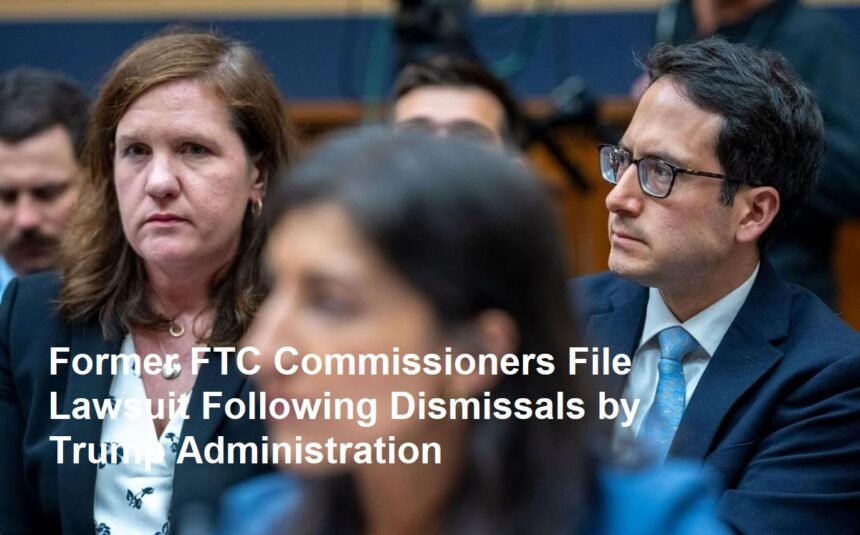Two prominent members of the United States Federal Trade Commission (FTC), Alvaro Bedoya and Rebecca Kelly Slaughter, have initiated legal proceedings after their abrupt dismissals by the Trump administration on March 18, 2025. The lawsuit, filed in a federal court on Tuesday, challenges the legality of their terminations and argues that the dismissals were politically motivated, undermining the independence of one of America’s key regulatory agencies.
Bedoya and Slaughter, who have served as vocal advocates for consumer protection and fair market practices during their tenure at the FTC, claim that their removal was not based on any professional misconduct or performance issues. Instead, they assert that the decision was driven by political interference aimed at reshaping the agency’s priorities in favor of a more deregulatory agenda. The lawsuit contends that such actions violate long-standing principles of administrative fairness and the statutory mandate of the FTC to act in the public interest.
According to legal documents submitted to the court, Bedoya and Slaughter have sought a judicial review of the decision to fire them and are asking for reinstatement to their positions, along with back pay and compensation for damages incurred as a result of the dismissals. The complaint alleges that the Trump administration’s actions disrupted the integrity of the FTC, an institution that plays a critical role in safeguarding consumers and maintaining competitive markets in the United States.
The case has ignited a broader debate about the politicization of regulatory agencies. Critics argue that the firing of high-ranking officials for political reasons can erode public trust in institutions designed to operate independently from partisan influence. “This lawsuit is a clear manifestation of the tension between political agendas and the need for unbiased regulation,” said one legal expert familiar with administrative law. “If successful, it could set an important precedent, reinforcing that even in politically charged times, regulatory bodies must remain insulated from undue interference.”
Bedoya and Slaughter’s dismissals have already sparked controversy within legal and political circles. Both commissioners have built reputations for their rigorous stance on enforcement and their commitment to protecting consumer rights. Their leadership was seen as instrumental in several high-profile cases involving misleading advertising and anticompetitive practices. With their departures, critics fear that the FTC may lose some of its capacity to challenge powerful corporate interests.
The Trump administration, on the other hand, has defended its decision, arguing that the terminations were part of a broader effort to realign federal agencies with its policy priorities. Administration officials claim that the changes were necessary to streamline operations and reduce what they view as an overzealous regulatory framework. However, these justifications have drawn skepticism from independent watchdog groups and former government officials who contend that such rationale masks a deliberate effort to weaken regulatory oversight in critical sectors of the economy.
As the lawsuit moves forward, observers are closely watching for its potential implications on future administrative actions and the balance of power between political leadership and independent regulatory agencies. The outcome of the case could influence not only the future composition and operational ethos of the FTC but also broader questions about the limits of presidential authority in directing the agenda of federal institutions.
In the coming weeks, legal proceedings will likely focus on whether the dismissals were indeed politically motivated and if they breached established protocols governing the removal of federal commissioners. Both sides are expected to present detailed arguments, with the plaintiffs emphasizing the need to preserve the agency’s nonpartisan mission and the defense underscoring the executive’s prerogative to implement policy changes.
For Bedoya and Slaughter, the lawsuit represents a fight not just for their own positions but for the very principle of an independent regulatory body. As the case unfolds, it will undoubtedly be watched as a bellwether for how political dynamics might shape the future of federal oversight and the protection of consumer interests in an increasingly polarized political landscape.












